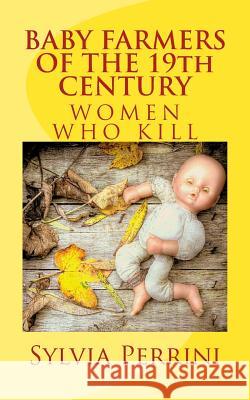BABY FARMERS OF THE 19th CENTURY: Women Who Kill » książka
BABY FARMERS OF THE 19th CENTURY: Women Who Kill
ISBN-13: 9781484128725 / Angielski / Miękka / 2013 / 84 str.
In this short book, author Sylvia Perrini profiles eleven Baby Farmers. Baby farmers both repulsed and fascinated the public of the day. The term "Baby Farming" was first used by the British Medical Journal in 1867, in an article entitled "Baby-Farming" in which they described a mother who had turned her children over to the "baby farmer" with the clear understanding that they would be neglected until they died. Over the course of the following year the British Medical Journal, published in a series of sensationalist pieces that many baby farmers committed serial infanticide. The articles attracted a great deal of attention and brought the term "baby farming" into widespread use. Baby farmers were women who looked after children for a fee. Legitimate baby farms supplied a much in demand service for unmarried, pregnant women in the Victorian era. The majority of baby farmers were caring and honest. A number of them, though, abandoned, starved, or even killed the infants in their care to increase their profits. Barely a week would pass without the police finding a little corpse abandoned in a railway carriage, left on the banks of a canal, or thrown into the swiftly flowing River Thames. There were strict laws against the mistreatment of animals but, until 1872, there were no such laws to govern baby farmers. Anyone could be a baby farmer; there were no regulations to conform to, no qualifications to be met, no paperwork, and no supervision of the premises or type of care the children received. For the middle-classes, baby farms offered the perfect solution. The pregnant daughter would be sent to the country and once the infant was born, he or she would be farmed out and, all being well, forgotten. The battle against baby farming was fought more or less continuously from 1865, to 1943, seventy-eight years to push through effective legislation to regulate this "social evil."
Zawartość książki może nie spełniać oczekiwań – reklamacje nie obejmują treści, która mogła nie być redakcyjnie ani merytorycznie opracowana.











